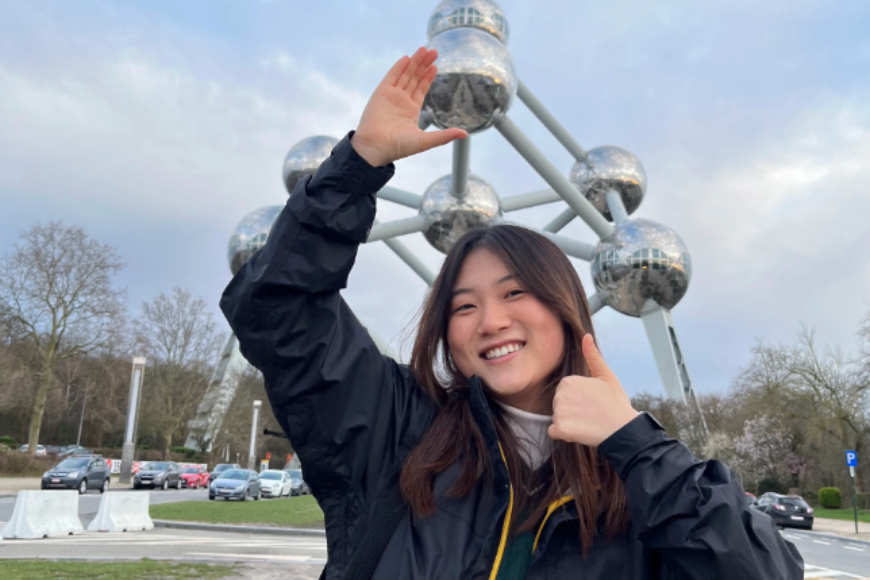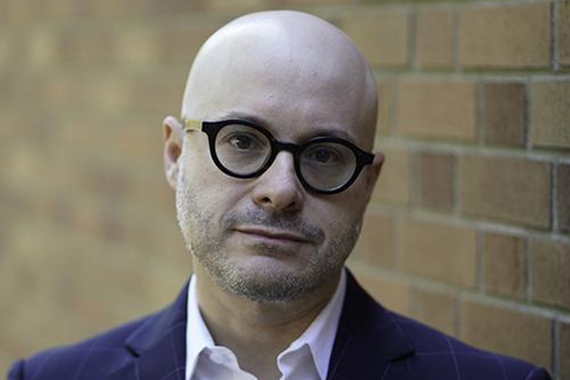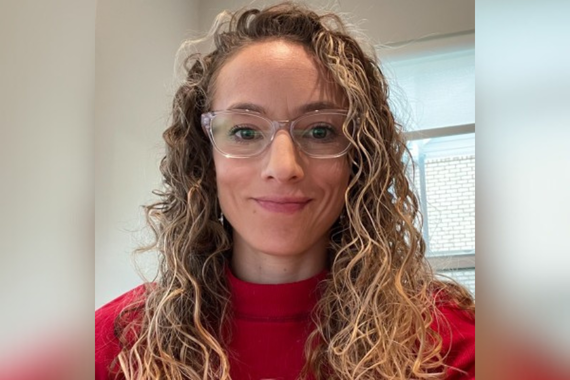Kaia Brands DIS Study Abroad in Scandinavia
Kaia Brands participated in the Danish Institute for Study-Abroad (DIS) Study Abroad in Scandinavia program at their Copenhagen, Denmark location for the spring 2023 semester. Learn more about her experience studying abroad.
How did you find out about this program?
I found this program through the Learning Abroad Center (LAC) website. I knew I wanted to go somewhere in Europe that I could navigate in English for the spring semester of junior year, so I sorted through the Europe programs that qualified for political science and history credit, since those are my majors. After a bit on the LAC site and going through DIS's site, I knew this was the program I wanted to do.
What were the highlights of this experience?
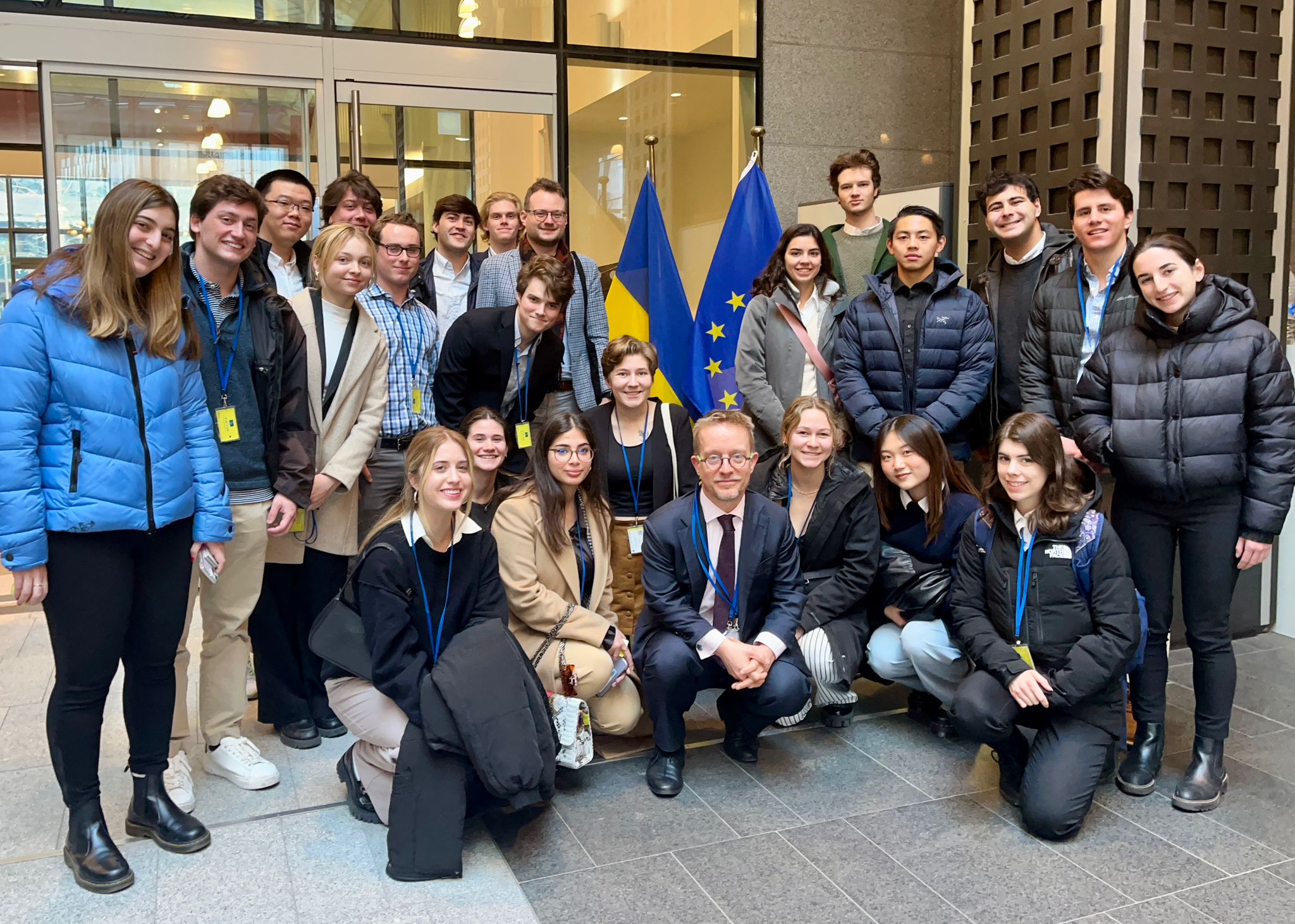
A highlight from this program was their Short and Long Study Tours. During your semester, you take two trips: one short tour typically within or near Denmark for three days (Core Course Week), and a week-long trip to another country in support of your core course studies, over one of two potential travel weeks.
My class, which was about the EU, went to Lübeck, Germany and Sønderborg, Denmark for our Short Study Tour and to Brussels, Belgium for our Long Study Tour. It was a mix of educational visits, like meeting with different EU politicians or interest groups, and cultural visits, like a chocolate-making class. It encouraged a strong class bond within the core course because of how much time we spent together.
Additionally, DIS does not hold traditional classes on Wednesdays; instead, all of your classes take turns to host field studies that day, which are essentially field trips for your class. You could have up to two per Wednesday. It could be as simple as a movie screening or going to a Danish museum. DIS's old motto was "Europe is Your Classroom," which I feel they truly embody with how they run their classes. Many of the experiences outside of the classroom made lessons much more memorable than a typical lecture.
What was the academic experience like?
I took five classes while abroad, each three credits. All of the classes are offered through DIS as opposed to a European university. The teachers are from different parts of Europe, offering courses of all kinds, while your classmates are also from American universities. I found that the courses relied more on group work than I'm used to, as much of Europe relies on group work. While it wasn't my personal favorite, it encouraged me to adapt and work with others.
One unique thing is that you have to choose one core course, which dictates where your study tours go. My core course was European Game of Politics: Crisis and Survival, which was about the European Union's history, current affairs, and challenges they face. I also took Democracies At Risk in Europe, Conspiracy Theories and Historical Controversies, Danish Politics and Society, and The Ethical and Scientific Legacy of Nazi Medical Crimes.
While you were studying abroad you also kept a personal blog. What sparked that decision? What was your experience like keeping the blog?
Each term DIS runs a student media team, consisting of bloggers, photographers, videographers, and more. I first heard about it from DIS emails, who are heavily in contact with you before and after your time abroad, that applications were open for spring. I was interested in documenting my time abroad as it was something I had never done before and had felt like I had been in a creative slump the winter before I left.
In the past, I've tried to keep a journal, but I never kept up with it. To apply as a blogger, you need to actually make your blog and write a pre-departure post and submit an application. They then reached out to people to do five-minute drop-in interviews when we arrived in Copenhagen and selected the final bloggers from there. I had figured that I could always try making the blog, and if I didn't like it I didn't have to continue it. Additionally, if I wasn't selected but I did enjoy it, I could have maintained my blog independently for my friends and family back home.
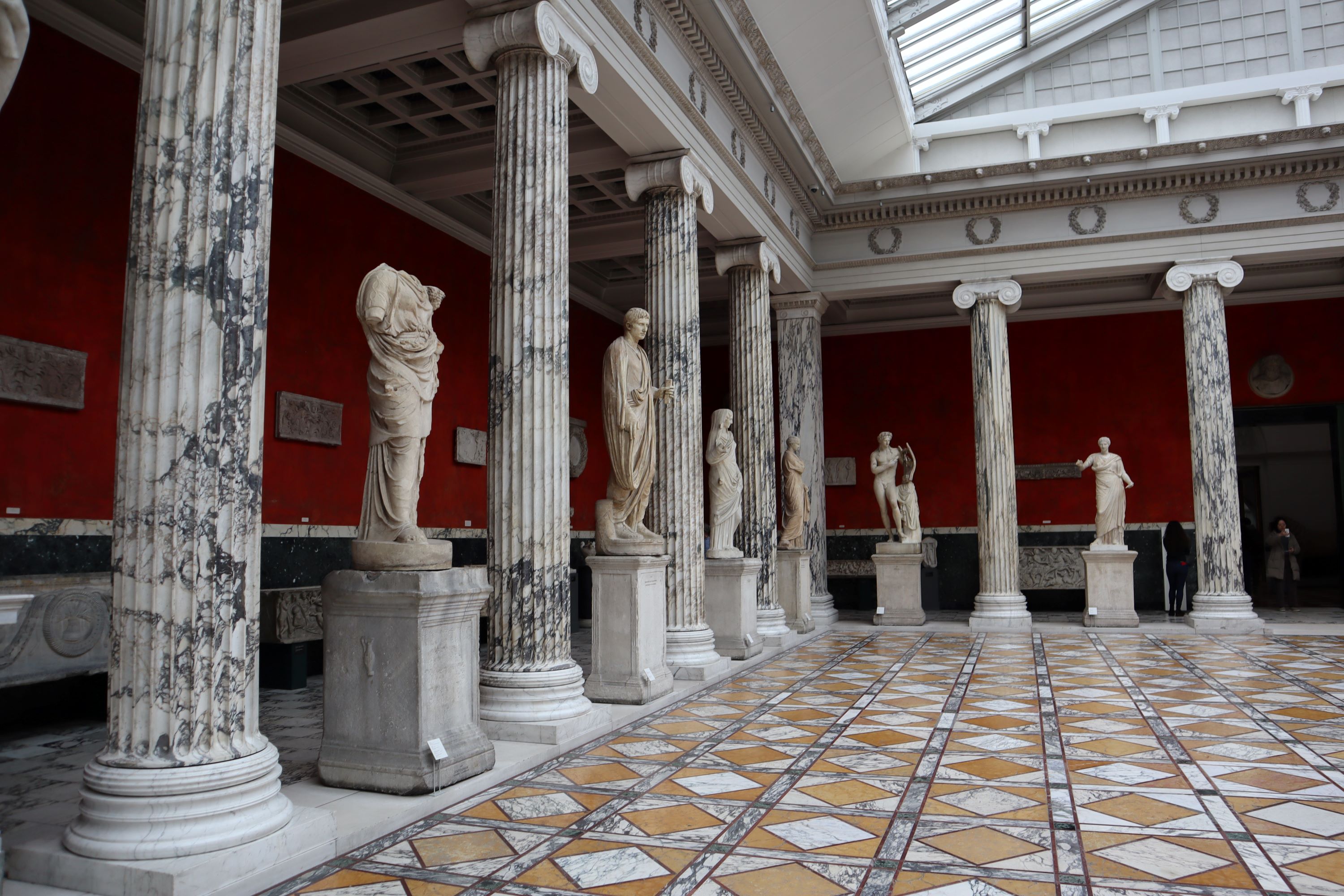
After being selected, we were expected to post about once a week. I often struggled with that, as it seemed as if there was nothing that extraordinary to write a whole blog post about each week. Writing my first post after pre-departure was quite difficult. I was really unsure of my personal writing style and couldn't quite seem to find it. I'm very accustomed to academic writing, so adding creativity and personality was a bit stressful at first, but it got easier towards the end of the semester. I had to challenge myself to write for the sake of writing, but that's part of the learning process.
A bit into officially being a blogger, I started to enjoy it once I began looking at it as my own personal journal or diary, as opposed to a thorough document of everything and anything. From this experience, I gained one or two blog entries of which I'm quite proud, that are different from any other writing I've done previously. I'm grateful even for the posts that I'm not necessarily a fan of, as it's a document of what I did with details I doubt I would otherwise remember. Some people in my core course read my posts about our study tours and said they felt like a celebrity reading a story about themselves and our lives.
One aspect I'm grateful for with keeping my blog is that it encouraged me to take lots of photos and to get out and explore more...for the sake of content, though a bit cheesy, and quite reminiscent of circa-2103 "do it for the 'gram" energy. I enjoyed taking photos of my experience, documenting it, and sharing it, which came much easier when I had the overarching thought of "What do I write about this week?" Other members of the social media blogger team felt similarly, as it pushed us to take full advantage of our time abroad and in Copenhagen, which made it a much more fulfilling experience, even if it was partially for content. Plus, having people abroad and at home reading the blog was a bit surreal, as I have never been one to share any writing I've done. As a non-sharing writing major, getting professional and peer feedback challenged me to be an engaging writer and was fun to share with others.
What were the biggest takeaways you had from your experience?
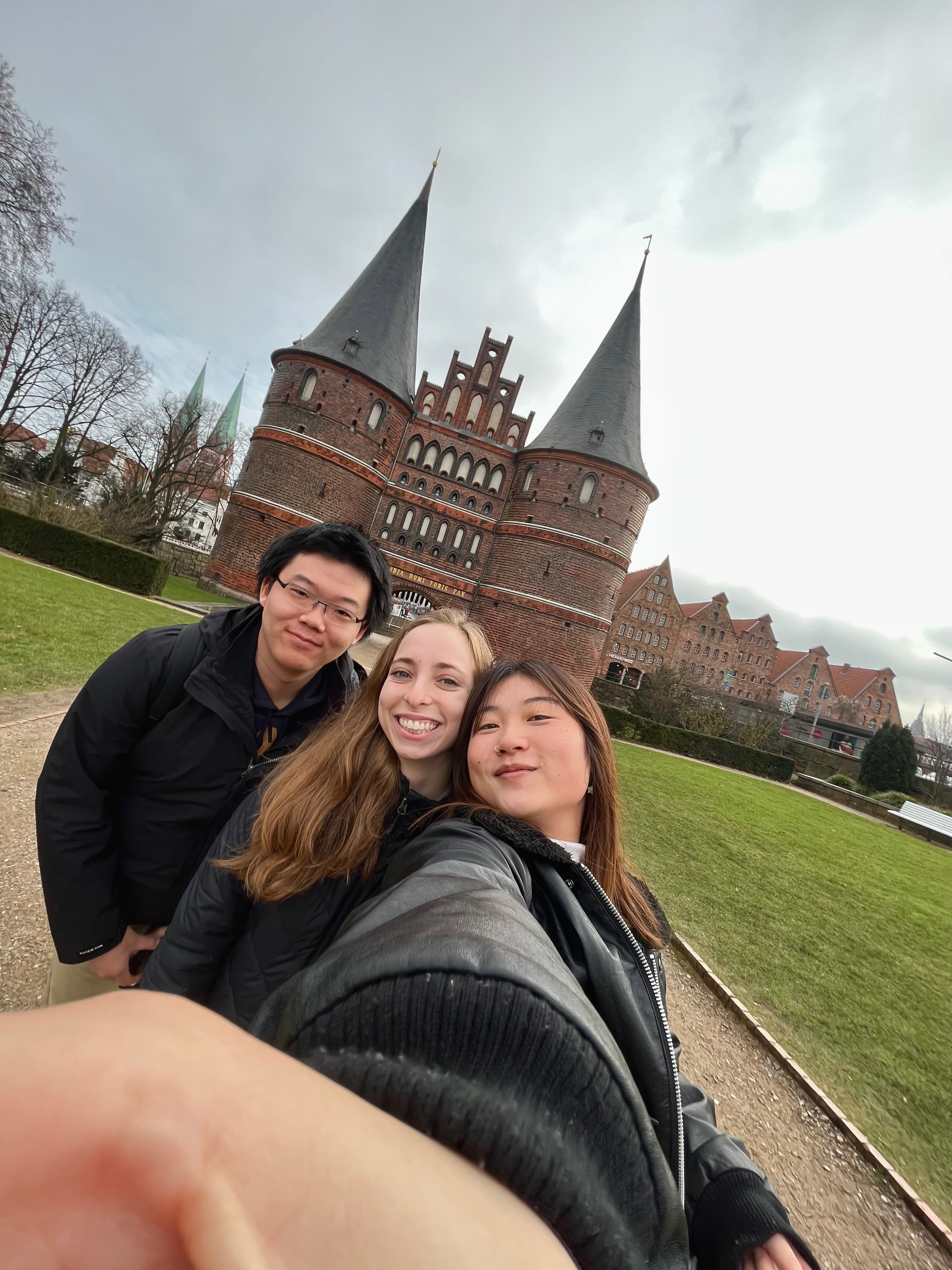
Experience is the greatest teacher. In every aspect of my time abroad, I was prompted to experience something new. On one hand, I chose a program based on the idea of teaching through experience and a hands-on approach. My classes consisted of guest lecturers, trips to organizations we read about in articles, and even trips to other parts of the continent just for the sake of academics. It was a totally unique style of education that I had never had before.
The other hand of experience was changing every facet of my life. Self-proclaimed, I love my comfort zone. Studying abroad was not just a self-push to get out of my comfort zone, but a full shove past its boundaries. I changed where I learned, how I learned, where I lived, how I got to school, who I lived with, who I saw every day, what I ate, who I took classes with, what I learned, how far away from home I was, and just about any facet of my life you could list.
One part of me was resistant to change, but the challenge of being abroad was learning to embrace all of these changes I had known were coming before I even got on the plane, and eventually finding comfort in all that's new.
It definitely was not always easy, but after a bit and in retrospect, I have a totally new appreciation for many aspects of life I wouldn't have had before. Don't get it twisted, I am not a completely different person with every aspect of who I once was abandoned, but I did learn a lot from my experiences and take them with me as I navigate life back home, as well.
What were the biggest challenges you faced? How did you overcome them?
One thing I really struggled with was the anxiety and pressure to do everything. Often, I feel studying abroad is framed as a once-in-a-lifetime opportunity, so you have to make the most of every single minute. And while this notion has some truth to it, and this mindset pushed me to do more, I also held myself back with this thought process. Personally, I'm a pretty introverted person and a homebody. There were many people that seemed to have endless energy and money, and were traveling every weekend and going out every night. I totally envied them and their lifestyle, which they seemed to maintain effortlessly. I put so much pressure on myself that I was not getting enough out of my abroad experience and I was wasting my time there. Every time I experienced any sort of negative emotion, I felt so much guilt because I wasn't doing my abroad experience right. It's as if I believed that living would pause just because I was on my semester abroad, voiding any human feelings.
Eventually, I had to reality-check myself that my mental and financial capacity were a bit different than many other people in the program, and that's okay! Figuring out ways more in alignment with myself and my budget to make abroad more fulfilling for me was crucial. I truly had to change my mindset because everybody's abroad experience is personal to themself, so it will look slightly different. In retrospect, I'm happy with all that I did, so now my biggest regret is not what I didn't do, but my mindset that at times held me back from truly enjoying my experience to the fullest. Don't self-sabotage yourself through constant comparison!
Were there any resources that helped you in finding, applying for, and/or participating in your study abroad program?
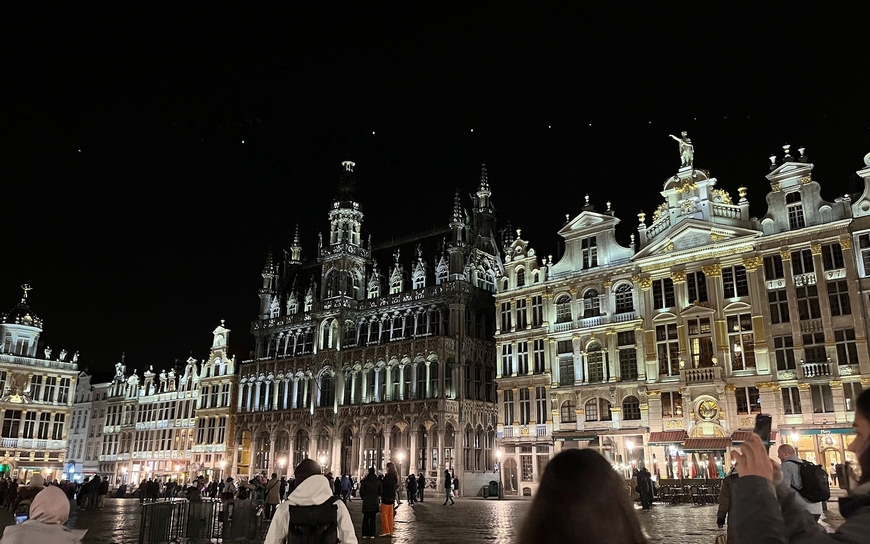
While in my application process, I met with the DIS program advisor at the LAC, who was very helpful in explaining DIS's specific process and timeline. They also sent a couple reminders for deadlines throughout the process.
In my opinion and from my experience alone, I found the application process to be relatively easy and quick in their response. After you're accepted, DIS pretty much holds your hand the whole way, so things like housing and visas were relatively easy. DIS also has many resources while abroad, like care services and student organization events.
What advice would you give to other students interested in studying abroad?
My advice would be to have fun and try new things, maybe even experiences you never thought you would ever do. Know that you're there to learn, but also to have fun. Just being around and immersed in another culture is learning.
On the flip side, try to keep your expectations realistic, both going into it and while there. Take into consideration things like your own capacity, financial situation, long-term goals, and specific things you want to accomplish. Studying abroad—and life—is a totally personal experience and there is no wrong way to do it! It's all about finding what's right for you and living that way authentically. There's nothing that provides growth like a new challenge, and what's more challenging than changing where you study, live, the people you're around, and possibly even the language you speak? Take the chance to enjoy new experiences and to grow into yourself!
Learn more about Kaia and her learning abroad experience on her blog: Kaia's journal.
